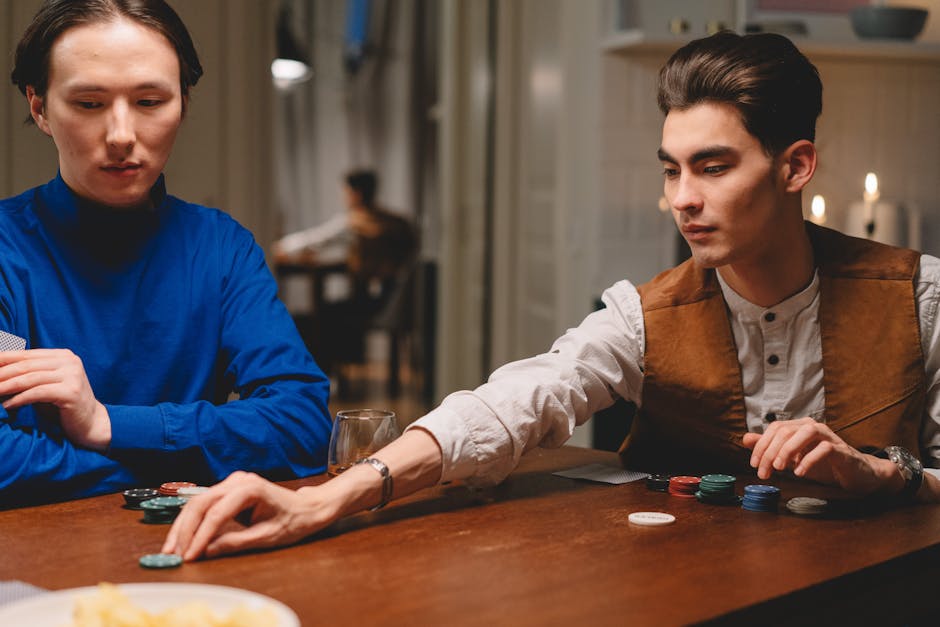Why Limits Matter More Than Luck
Gambling starts out as entertainment—flashing lights, quick wins, laughs with friends. But the line between fun and risk is thin. It’s easy to lose grip on what you’re spending, how long you’ve been playing, or what you’re chasing. That’s where the concept of “responsible gambling” actually matters. This isn’t about buzzwords or guilt-tripping; it’s the mental framework that helps you keep play in check.
The psychology behind gambling is sneaky. It plays on control—specifically, the illusion of it. Humans are wired to search for patterns, feel lucky, or believe they’re ‘due’ for a win. But digital games don’t care. The deck’s shuffled by code. Staying in control means knowing when you’re not. Responsible gambling isn’t about quitting cold—it’s about measured steps. Time limits. Budget caps. Exit strategies. These aren’t just tools; they’re mental guardrails.
Think of it like this: limits don’t ruin the fun—they protect it.
Know Your Game, Know Your Risk
Not all games are created equal—and neither are the risks that come with them. Slot machines, scratch cards, roulette—these tend to be fast-paced, high-stimulation games that encourage rapid betting. Research shows that the quicker the game, the faster you lose. It’s not just about the odds (which, by the way, usually favor the house heavily); it’s also about how little time you have between decisions. The pace gives less room for reflection and more room for impulse.
Contrast that with poker or sports betting. These formats usually unfold at a slower clip and often involve more strategy or downtime. That doesn’t mean they’re harmless—they carry their own risks—but the tempo gives you more space to think and measure decisions.
Knowing this, smart gamblers lean on tools to help track their behavior in real time. Many platforms now offer built-in features to show your win/loss history, bet frequency, and time played. There are also external tools and apps that crunch the numbers for you. These aren’t just for hardcore data geeks—they’re for anyone who wants to stay out of trouble while still enjoying the game. Knowing what you’re really spending and how fast you’re playing is the first step to staying in control.
The Core Types of Gambling Limits
Not all limits are created equal, but together, they form a tough line of defense between entertainment and trouble. Here are the four core types every gambler should know—and use.
Deposit limits let you set a cap on how much money you can load into your gambling account over a day, week, or month. Think of it like setting the boundaries before you even step on the field. Once that line is drawn, it’s easier to stop things before they spin out.
Time limits do exactly what they sound like: they cut off your session when it runs too long. It’s how you sidestep those late-night spirals that start with “just ten more minutes” and end two hours later. Time adds up faster than you think.
Loss limits are your safety net. They stop you from chasing your own tail trying to win it all back. You define the number, and the platform locks you out once you hit it. It’s blunt, effective, and can save you from bigger regrets.
Wagering limits keep your bets from ballooning out of proportion. You’re not in a war, you’re playing a game. Sticking to bets that fit your budget stops emotional decisions before they happen.
The real power is in combining these. A deposit limit without a time limit helps some, but layering all four builds a foundation you can actually stand on. It’s not about playing scared—it’s about playing smart.
Use the tools. Play with intention. Set the guardrails before the road gets rough.
Tech That Helps (Seriously)
Most gambling apps aren’t just shiny digital casinos—they come with built-in safety tools, if you bother to use them. Nearly every regulated platform now offers deposit caps, session timers, and loss limits right in the settings menu. They’re not hidden, but you’ve got to take the initiative.
Outside the platform, third-party tools like Gamban or BetBlocker let you block access to gambling sites entirely. These are especially useful if you need a hard reset or find yourself circling back to your habits too easily. They’re not perfect, but they are friction—and friction helps.
Self-exclusion is the nuclear button. It’s when you tell a site (or several) to lock you out for a set time: weeks, months, even years. It works best when paired with practical changes in your environment—deleting apps, telling a friend, trashing saved cards. It’s not about weakness. It’s about zoning off damage and protecting progress.
When choosing a platform, prioritize the ones that actually give a damn. Clear limit settings, visible support links, reality check alerts, and licensing from responsible gaming bodies—those are green lights. If a site makes it hard to find these features or buries them in fine print, that’s a red flag worth walking away from.
(Read more at: GambleHubZone)
Real Habits that Actually Work
Staying in control of your gambling starts with practical, repeatable habits. These aren’t about being perfect—they’re about building routines that make safer play automatic. Here are some proven strategies that real players use to stay on the right side of the line:
Think of Deposits as Entertainment Expenses
- Treat money spent on gambling like movie or concert tickets—it’s the cost of entertainment, not an investment or income stream.
- Set a dollar amount you’re willing to spend, and once it’s gone, you’re done—no exceptions.
Set Time and Money Limits Before You Start
- Decide how much time you’ll spend gambling before opening the app or visiting a site.
- Choose a spending limit that fits comfortably within your monthly entertainment budget—not your savings or bills.
- Use features built into most gambling platforms to lock in these limits before you start playing.
Try the 10-Minute Check-In Rule
- Every 10 minutes, pause and ask yourself: “Am I still playing for fun or chasing something?”
- This simple practice brings awareness back into the moment and cuts through emotional decision-making.
- Set a timer if needed, especially during fast-paced or high-risk games.
Master the “Walk Away” Strategy
- Set clear signs in advance that tell you when to log off: after 30 minutes, after one big win, or after hitting your time limit.
- Stepping away—even when you’re up—is a power move, not a loss.
- Taking regular breaks helps prevent fatigue, frustration, and overconfidence—all of which lead to poor decisions.
Developing these habits takes practice, but once they become part of your routine, gambling stays a game—and never turns into a problem.
Warning Signs You’re Over the Line
This is where things start to drift from fun to something else entirely. If you’re chasing losses, convincing yourself the next round will fix the last, it’s time to check in. Gambling that becomes about breaking even—or undoing damage—isn’t entertainment. It’s a trap.
Another red flag: secrecy. If you’re hiding your habits from people close to you, ask why. That kind of concealment doesn’t show up when everything feels healthy. It creeps in when you’re worried about judgment—or already judging yourself.
Same goes for mood-based gambling. Stress, sadness, boredom—these aren’t reasons to log on. They’re signals. If you gamble when you’re low, the game isn’t helping; it’s distracting. And that can spiral.
And here’s the simplest test: is it still fun? If not, don’t brush that off. It’s not just an off night or a cold streak. It’s your gut telling you something’s off. Listen to it. Stepping back isn’t weakness. It’s clarity.
Where to Get Help
If gambling starts feeling less like fun and more like something you can’t walk away from, it’s time to tap into the support that’s out there. No lectures. Just options.
Start with reputable helplines. These aren’t bots or generic email inboxes—they’re staffed by real people trained to talk you through what you’re facing. In the U.S., the National Problem Gambling Helpline (1-800-GAMBLER) is available 24/7. In the UK, there’s GamCare. Many countries have national resources like these, and a quick online search will plug you into the right one.
Peer networks and forums are another lifeline. Spaces like Reddit’s r/problemgambling or dedicated Discord servers offer a place to talk, vent, or just listen. Hearing from others who’ve been where you are (or are still there) can be grounding.
Then there’s where you play. Not all platforms are created equal. Stick with licensed operators who enforce self-exclusion and offer tools that help you stay in control. If a site makes it hard to set limits or take a break, it’s not somewhere you should trust with your time—or your money.
Support isn’t weakness. It’s strategy.
Final Words
Limits aren’t straightjackets—they’re just good strategy. Like a safety harness on a climb, they don’t hold you back; they keep you from falling too far if things slip. Setting limits doesn’t mean you don’t trust yourself. It means you’ve thought this through. You know fun can turn, and you’d rather stay in charge.
Safe gambling isn’t rigid. It’s clear eyes and steady footing. It’s knowing the rules of the game—your game—and sticking to them. Whether you’re up, down, or somewhere in between, the goal isn’t just a win. It’s walking away with your mind clear and your choices intact.
In the end, you’re not playing for the jackpot—you’re playing for balance. That’s the real win.




